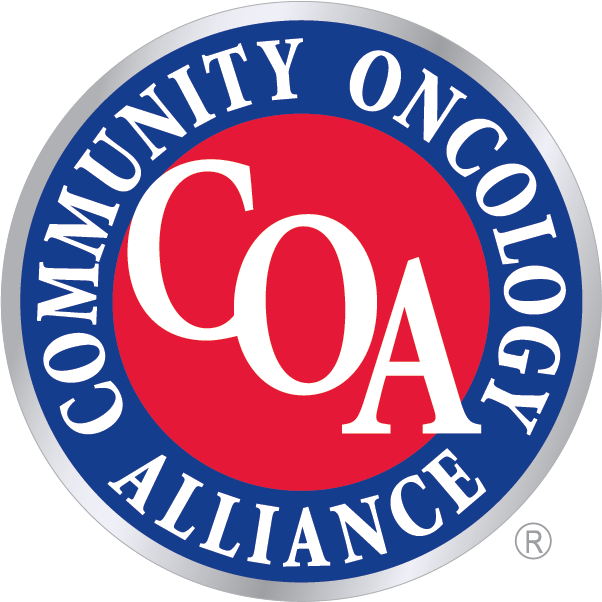COA Payer Exchange Summit Goes All-Virtual
Annual Meeting of the Payment Reform Minds Taking Place October 25-26
The
2021 COA Payer Exchange Summit on Oncology Payment Reform, scheduled to take place October 25-26, will now take place as a 100 percent virtual event. After careful consideration, COA has decided to transition to an all-virtual event to ensure attendee safety and limit the spread of COVID-19.
The COA Payer Summit virtual platform is tried and tested and provides an interactive base for learning and discussion. We are excited to bring the 2021 Payer Exchange Summit to your home office or workplace!
The 2021 COA Payer Summit agenda is packed. Each day brings you in-depth analyses on pressing oncology payment and value issues, including:
- Increasing self-insured employer engagement in oncology contracting.
- Successful state efforts to regulate pharmacy benefit managers, and what you can learn from them.
- The future of the Oncology Care Model, Oncology Care First model, and pending Radiation Oncology Model.
- The persistence of care disparities and how we can do to address them.
If you are a cancer care provider, public or private payer, employer, employer health group, or oncology industry leader (excluding pharmaceutical representatives) who is, or has been, involved with payment reform efforts, make sure to reserve your spot at the Summit today!
Request your invitation to the COA Payer Summit at https://payerexchangesummit.com
New Study and Webinar: 340B Hospitals Drug Markups
Join Us for a Free Deep Dive Into the Report on October 6
A
new study finds that hospitals participating in the 340B Drug Pricing Program are significantly marking up the price of cancer drugs and making “a handsome profit” off the backs of patients.
The study documents how hospitals participating in the government’s controversial 340B Drug Pricing Program are profiting enormously by marking up cancer drug prices a median of 3.8 times, and just how much employers and health plans that manage their employees’ benefits are paying. After years of explosive growth, 41 percent of all hospitals in the U.S. participate in the 340B program today.
Join the study’s lead researcher, Moto Bioadvisor’s Aharon (Ronny) Gal, PhD, COA’s Executive Director Ted Okon, and the National Cancer Treatment Alliance’s President Robert Baird for a free webinar on October 6th from 12-1:00 p.m. ET. They will examine the study results and discuss its implications for employers and their employees.
Register today and don’t miss this important webinar!
COA Submits Comment Letters to CMS on Proposed 2022 MPFS & OPPS
Detailed feedback provided on annual government proposals that update payment rates and policies for physician and hospital reimbursement
This month COA submitted comment letters to the Centers for Medicare & Medicaid Services (CMS) regarding the proposed 2022 Medicare Physician Fee Schedule (MPFS) and 2022 Hospital Outpatient Prospective Payment System (OPPS).
The proposed rules indicate how Medicare plans to update reimbursement for physician and hospital services the following year, and serves as a vehicle for Federal policy changes, big and small.
In
COA’s letter on the proposed 2022 MPFS, we applaud CMS’ decision to extend and allow flexibilities with telehealth services, as well as efforts to expand access and minimize the cost of cancer screenings. However, COA is extremely concerned about adjustments to the CY 2022 MPFS conversion factor and several changes to the Evaluation and Management (E/M) code set.
In
our letter on the proposed 2022 OPPS, COA commends CMS for provisions that would strengthen hospital price transparency regulations and continue reforms with the 340B Drug Pricing Program. However, COA continues to oppose the planned Radiation Oncology (RO) Model, noting its opposition to mandatory government models, and the irresponsibility of launching the model during the COVID-19 pandemic.
Read COA’s full MPFS comment letter.
Read COA’s full OPPS comment letter.
COA and ASCO Launch Oncology Medical Home Certification Pilot
Pilot is Based Upon Newly Released Joint OMH Standards
In July, COA and the American Society of Clinical Oncology (ASCO) jointly released new
Oncology Medical Home standards, which provide a comprehensive roadmap for oncology practices to deliver high-quality, evidence-based cancer care.
Continuing the commitment to a value-based, patient-centered cancer care system, this week ASCO launched the Patient-Centered Cancer Care Certification. The pilot is based around the recently published OMH standards.
Currently, most payers in the U.S. use their own set of standards that practices must adopt to show they are pursuing value-based, high-quality care. The myriad of standards can lead to confusion when evaluating practices and is time-consuming for both evaluators and participants. COA and ASCO are confident this pilot will encourage payers and providers to adopt this set of universal, expert-backed standards.
The pilot includes 88 cancer care sites and nearly 500 oncologists from 12 different practice groups and health systems. Additionally, Anthem has agreed to participate in the pilot to facilitate easier sharing of data.
Read more about the OMH pilot and our collaboration with ASCO.
COA Warns Congress About Ignoring Nation’s Cancer Care Infrastructure
Letter to Congressional Leaders Asks for Stoppage of Sequester, RO Model
Earlier this month, COA sent a
letter to Congressional leadership warning them of the unfolding cancer care crisis in the US and asked them to support community oncology.
The letter emphasizes the need to support cancer care, especially while the COVID-19 pandemic continues to strain health care facilities. In it, COA asked that Congress vote no on allowing Medicare to negotiate drug prices, stop the Medicare sequester cut, and take action against destructive pharmacy benefit managers (PBMs).
Community oncology practices and professionals across the country are working overtime to keep patients safe and treated during the pandemic. Congress should not take any action that harms providers or patients but instead pass policies that remove barriers to lifesaving cancer care.
Read the press release and full letter on the COA website.
